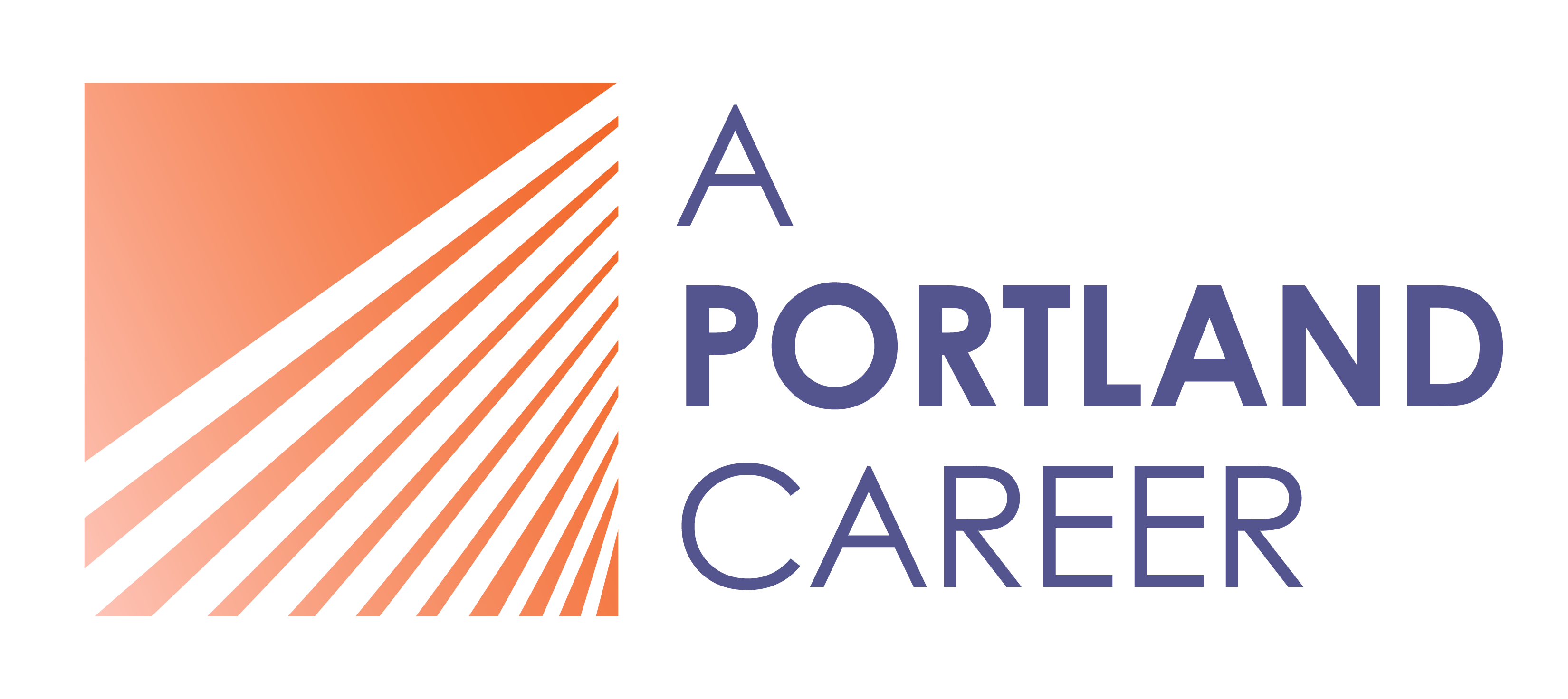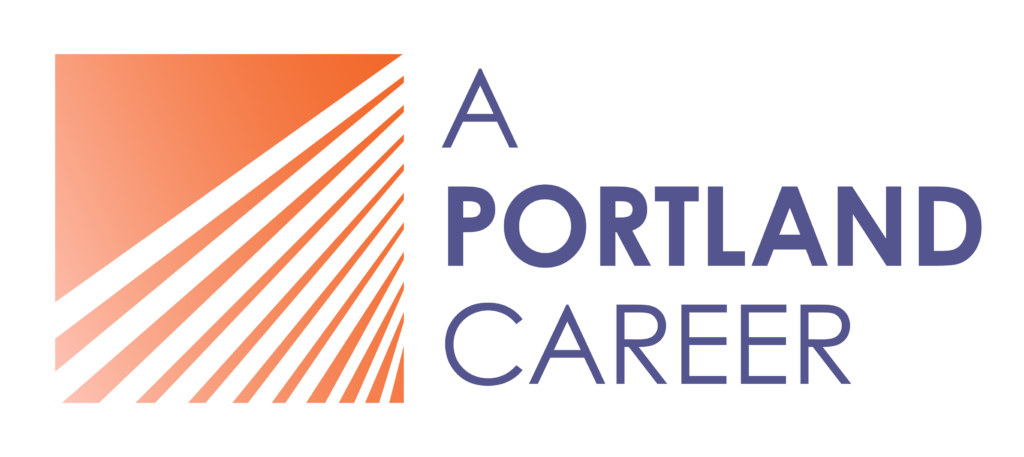Get insider interview tips that’ll help you nail the job interview and land your dream job!
Nail your next job interview by preparing for these 25 (plus 10!) most common interview questions.
The 25 (plus 10!) Most Common Job Interview Questions
By A Portland Career, and edited by Suzie Sherman and JD Duran
Preparing for a job interview? We can help you nail it

Congratulations! You’ve landed a job interview in your search for a new job. Now, it’s time to hunker down and prepare for your new job opportunity, so you can make a winning first impression on the recruiters in charge.
Benjamin Franklin said that “by failing to prepare, you are preparing to fail.” And as far as job interviews are concerned, all it takes is a few hours of reflection and research — starting with this article. To help you prepare for your next job interview, we prepared a comprehensive list of the 25 most common questions you’ll most likely encounter, 10 questions to ask your potential employer, and pro tips to help you nail them all.
So if you’re a job seeker wondering what kinds of questions you should practice answering (and asking) before your next job interview, keep reading!
Home → Helpful Articles → Interviewing → The 25 (plus 10!) Most Common Job Interview Questions
Here are more great posts about how to prep for your next interview:
- How to Prepare for Your Next Job Interview: The Career Expert’s Guide
- Virtual Job Interviews: Master the Art of Zooming It In!
- The CAR Interview Method Brings Your Accomplishments to Life
- How to Ace the “Greatest Weakness” Question in Your Next Job Interview
- Answering Tough and Weird Interview Questions
- Advanced Job Interview Tips: Know Your Answer and How You’ll Say It
If you’re still feeling anxious about interviewing, get in touch with us, and we’ll make sure your interviews start landing you more job offers.

The 25 most common job interview questions to prepare for
Behavioral interview questions are all the rage right now, which means you can expect lots of open-ended questions that require you to examine yourself in your last job and explain how you handled something. They’re meant to gauge your level of self-awareness, work ethic, problem-solving skills, the way you handle stressful or ambiguous situations, juggle priorities, and overcome challenges.
So without further ado, here are the 25 most commonly asked questions you should acquaint yourself with before your next job interview:
- Why do you want this job?
- Why are you interested in this company?
- Tell me about yourself (and your current role).
- What’s your greatest strength?
- What is your biggest weakness?
- Where do you see yourself in five years?
- Describe a time that you were part of a team and your role as a team member
- Describe a conflict you had on a job and how you resolved it.
- What have been your most important accomplishments?
- Give an example of your strengths in action.
- Give us an example of a time when you used teamwork to overcome a challenge?
- Why should we hire you?
- How did you hear about this position?
- Why do you have a gap in your employment history?
- Have you ever been fired?
- How do you stay organized at work? / What project management tools do you use?
- What should we know about you that’s not on your resume?
- What are your salary expectations?
- What are some of your career goals?
- Are you willing to relocate?
- What do you like to do outside of work?
- What motivates you?
- How do you deal with stressful situations?
- Why are you leaving your current job? /Why did you leave your previous job?
- Do you have any questions for us? (see the section below)
Note: the questions above are fairly generic. If you’re looking for sample answers to more uncommon interview questions, we have you covered here.
Pro tip: It helps to be prepared with a list of your standout accomplishments in your past work experience with details on how you went above and beyond expectations, your long-term goals, your skill set, and how you handled a tricky situation or challenging project. Schedule a mock interviewing session with us to refine your self-presentation!
Tips to help you answer interview questions
The most important thing to understand is that there are (usually) no wrong answers to questions. Hiring managers are simply looking for well-thought-out answers that showcase your experience and skills (importantly, communication skills), and which tell them you’re self-aware enough to understand what your strengths and weaknesses are.
Other things to think about:
- Take a minute if you need one to consider how you’ll respond to questions—it’s perfectly okay to say “give me a minute”
- Consider using the CAR (challenge, action, result) format to tell more impactful stories about your work experiences
- Depending on the type of work you’re going for you may be faced with different kinds of questions, which you can prepare for with LinkedIn’s guides to interviewing for specific positions
- Review the job description posted by the company, then double-check LinkedIn’s job description templates to cover your bases

10 questions to ask an employer in a job interview
At the end of most interviews you will be asked, “Do you have any questions you would like to ask us?”
You’ll want to prepare yourself with a list of 5-10 questions ahead of time. You usually won’t ask more than three or four, but you don’t want to run out of options in case several of your questions are covered during the course of the interview.
Here are 15 examples of questions our clients have asked their potential employers during job interviews:
- What can you tell me about my future co-workers, company culture, and work environment at ____? What does it mean to be a “cultural fit” here?
- Am I hearing you correctly that one of your biggest concerns is _____?
- How do you see the organization changing over the next few years? I’ve had a chance to review the strategic plan on your website. Do you see it as realistic and on track?
- What are the goals of this department and how would the person you choose to fill this position make a contribution?
- I read that you have been very successful at ___________. What do you think accounts for this success?
- I know that your company is a leader in providing access for adults returning to school, including the use of computer-based distance learning. What accounts for your leadership in this arena?
- I read that your organization is one of the fastest-growing civil engineering companies in Portland. To what do you attribute your growth?
- How much travel time is expected of this role?
- Is relocation a possibility? If so, what about relocation assistance?
- What’s your favorite part about working for this company?
Tip 1: For the love of god, research the employer before going into an interview. Interview preparation is key— so at the very least, pick through their company website and social media profiles.
Tip 2: Wait until you have a job offer to ask about things like pre-arranged travel plans, signing bonuses, or extra job perks.
Why asking your potential employer questions is important
When the hiring manager passes you the ball to ask questions, your task is to demonstrate that you want to understand the concerns and perspectives of the people taking the risk of hiring a new employee — not just what the salary range is.
There are three interrelated goals you want to meet when you ask your questions.
- To learn more about the organization and the position. That will help you decide if you want to accept an offer if one is extended.
- To show you’ve done your research. into the position and/or organization by asking intelligent questions.
- To demonstrate your listening skills.
Final thoughts to keep in mind during your next job interview
Don’t forget that the interview process is not the end of your job search—it’s a part of it. It’s your chance to see whether an employer is a perfect fit for you, and not just the other way around.
The hiring process may involve several rounds of interviews, so make sure you study up on questions to ask and answer before each one.
Key takeaways
- Behavioral questions tend to be open-ended and gauge your level of self-awareness, work ethic, problem-solving skills, and ability to handle stress
- Write down a list of your standout accomplishments in your past work experience to help you answer tough questions
- It’s perfectly okay to ask for a minute to consider how you’ll answer a question
- Recruiters and hiring managers expect you to have a few questions ready to ask them at the end of your interview
- Research your potential employer beforehand, and use what you learn to inform the questions you ask
Related articles you might be interested in:
Answering Tough and Weird Interview Questions
Interview questions can sometimes come way outta left field. It’s a good idea to prepare for the more difficult or just plain weird interview questions you might get asked.
Advanced Job Interview Tips: Know Your Answer and How You’ll Say It
The best job interview tip: prepare! Confident tone, eye contact, and answers to common interview questions are all skills you can, and should, practice!
When and How To Say Thank You after Your Interview
Thank you notes never go out of style! Here’s what to include in a thank you note or email after the job interview.





